Joining me is former England rugby star Shaunagh Brown, who brings a refreshing blast of honesty to the corporate world. Having represented her country in both rugby and athletics, worked as a firefighter, and started her career as a gas engineer, Brown is now back where it all began – but this time as a brand partnerships executive at British Gas. Her journey from elite sport to the boardroom offers fascinating insights into the value athletes can bring to business, and why sometimes the best approach is simply saying what you think. With her trademark candour and humour, she discusses the challenges of transition, authentic leadership, and why the corporate world could do with “a few more chill pills.”
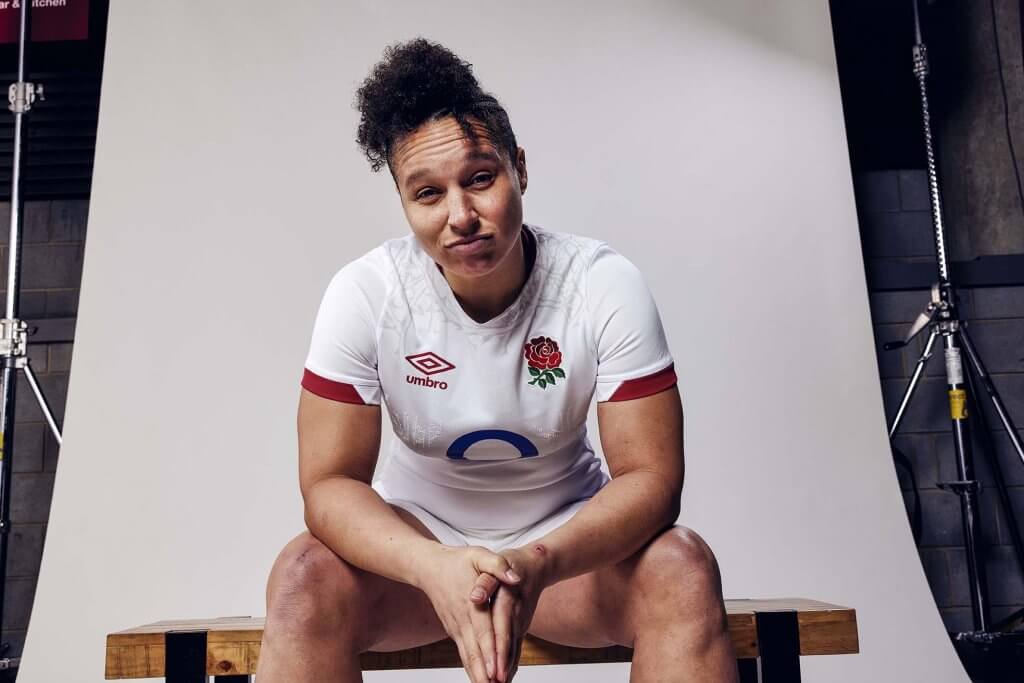
You started playing rugby about 10 years ago, then made your international debut in 2017. Before that, you’d already represented England in the Commonwealth Games. Now you’re in business – would you call yourself a serious businesswoman? And did you expect to have this many different careers?
“I’m not a serious businesswoman. I try to avoid serious business situations. If things are getting awkward, I just tell a joke or say something completely sarcastic or inappropriate. Growing up, I never thought ‘I’ll be a trailblazer for women’s sport, and eventually just be a trailblazer for women.’ That’s not what I signed up for. I couldn’t have made this up because I didn’t know it existed.
“Even now I’m living it, I’m still not quite sure what I do. I have a job at British Gas and I have a job title – I’m British Gas brand partnerships executive. When everyone asks what that is, I just say ‘well, it’s just that.’ My other stuff, I just call it other stuff. It’s really important stuff, and really fun stuff, but I’m still not quite sure what to call it. I didn’t dream of this lifestyle, but now I’m in it, I wouldn’t change it for the world – would recommend to a friend.”
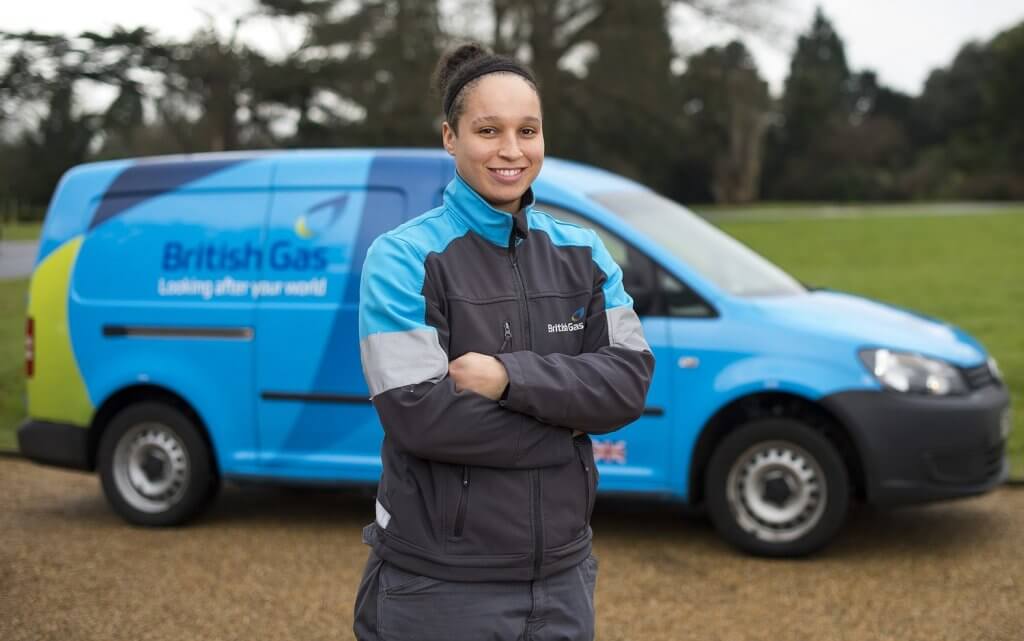
Is it right that British Gas was your first job?
“Yes, my first proper job was a British Gas apprenticeship in 2010. I did an installation apprenticeship, fitting boilers, radiators, just general central heating. I did that for five years and then moved on. Now I’ve gone back home, gone back to where it all started.”
You’re doing what’s called the Centrica Leadership Placement right now, which sounds pretty grand. I’m interested to learn more because you’ve got all this experience of being an elite athlete and you must have met so many different people in so many different places. The opportunities that you’ve come across and created for yourself are just so wide. It’s pretty incredible that you’ve got all that and you’re now bringing this into this workplace. How did it all come about?
“I saw it on one of the 110,000 WhatsApp groups I’m on. Someone put a post in about it – the athlete who shared it is on the board, the athlete representative on the British Olympic Association board. The pathway program started with ex-forces last year. Because of British Gas’s partnership with Paralympics GB and Team GB, they extended it to athletes because, as we know, current and ex-athletes have an elite set of skills.
“This year, 19 of us started on the same day, a mixture of ex-forces and athletes. Within the athletes, it’s not just Olympic and Paralympic sports – it was about representing your country on an international stage. I looked at the flyer that came on my WhatsApp and thought, why not? That’s kind of how I approach most of life. I knew I was going to retire this season, wasn’t really sure what I wanted to do, if I wanted to have a proper job or not. So it seemed like a good idea.”
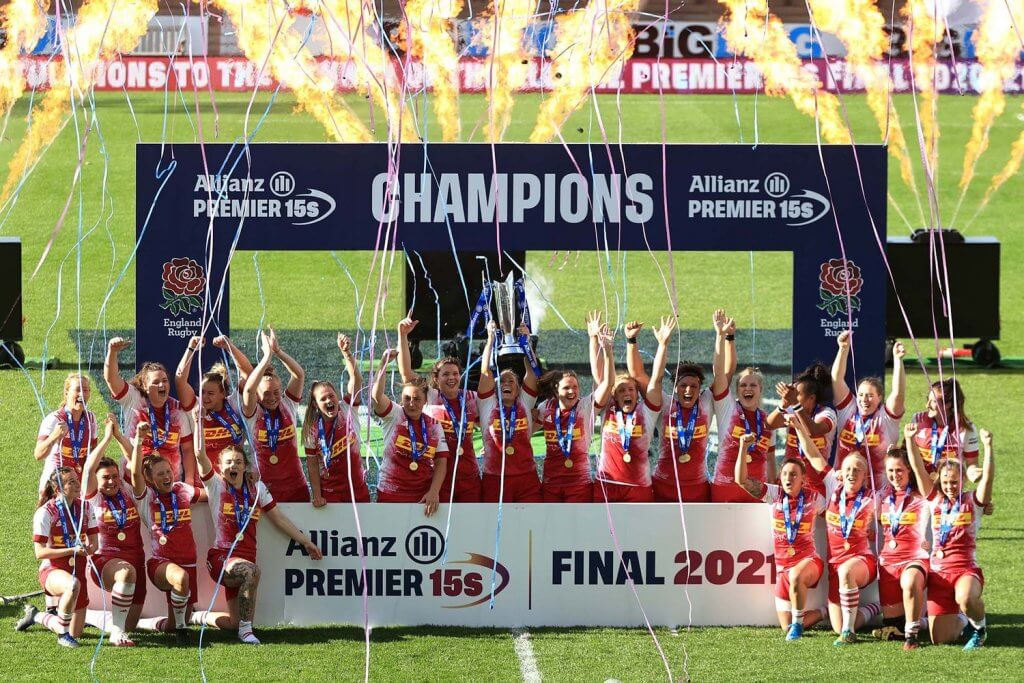
Did you have much experience with CV writing and covering letters? Because I even think in my job working as a broadcaster, I can’t remember the last time I did a serious job interview.
“I genuinely like to be prepared for any situation. I did have an adult corporate CV – I have a few different CVs for different occasions. I got help with that about a year ago through a mentor program with Women’s Sports Trust, their Unlocked program. I got partnered with a mentor who helped me write my CV. I just updated it and submitted it. The covering letter was straightforward because I had a template. But I did hear stories of other successful candidates who got help from the people who run the Centrica program – they literally just asked for help with writing their CV and got it.
“What I really like about that is the holistic approach, acknowledging that you’re asking forces personnel and athletes to apply who might not have that kind of skill set. You might have been in the forces for the last 20 years, you might have been an athlete for the last 10 years, so why would you have the most up-to-date corporate CV?”
You’ve worked in so many different kinds of working worlds, including firefighting. So I guess going into this kind of workplace hasn’t been that much of a stretch for you. At 34, how do you feel about where you’re coming in? Because lots of people you’re working with might have been in this kind of business environment nonstop since university or even before that.
“Sometimes when I speak to people who are heads of department or directors, in charge of something really big, we talk about age and some of them are younger than me. That’s when I think, ‘my gosh, what have I been doing all my life?’ My computer literacy gets me by – I’m not the best, not awful. These people are running really big parts of the business. But then you put it in perspective and I tell them my backstory, and they’re like, ‘well, what have they been doing with their lives?’ It’s swings and roundabouts and accepting that we choose our paths. As long as you back yourself and go with it, expect to be good at it because that’s what you’ve chosen.”
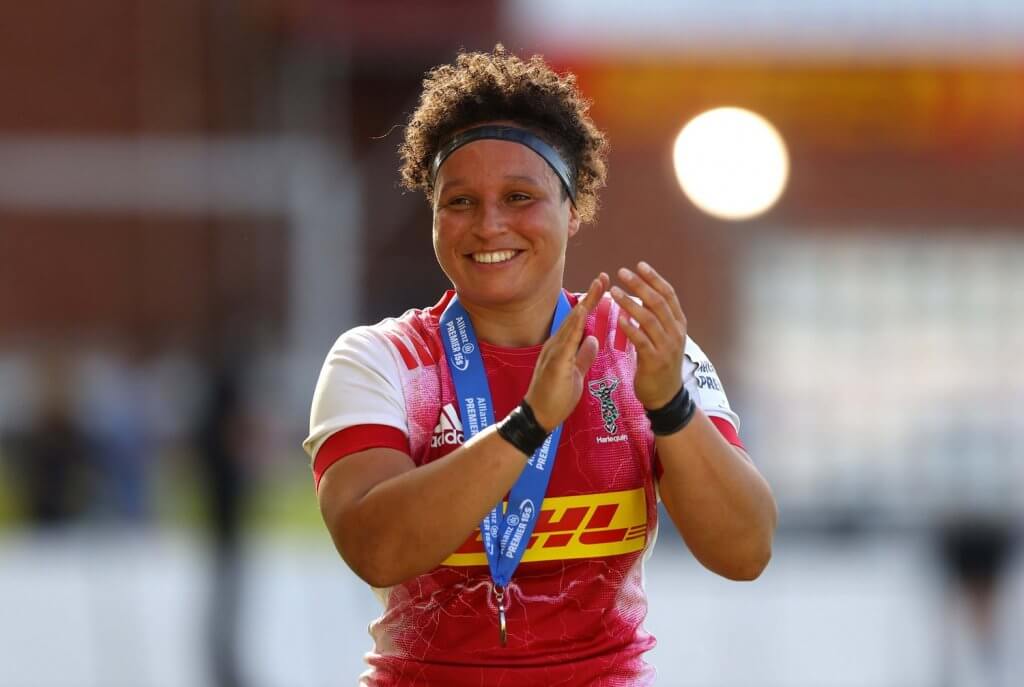
It’s interesting because when you’re moving into a corporate world like that, you might not know how to put certain skills on a traditional CV. You know how to network, you know how to find the people you need to make things happen, but you might not know the specific corporate terms for these skills. That can sometimes be intimidating.
“Reading the job description for the brand partnerships executive role, there were a few headlines that stuck out. One was about being a ‘positive disruptor’ – I wouldn’t call it that, I’d call it saying my opinion out loud, but apparently there’s a title for that. Another one was ‘the ability to talk to the most junior member of staff, as well as the CEO.’ I thought, ‘what, am I not going to be able to use my words with someone who’s different?’ They’re saying these skills as if they’re special, but because I’ve got them, I just assume everyone has them. But apparently not.”
So it sounds like you focused your attention on this application and mapped it onto what they were looking for.
“Yes, and reading the job description, there was a lot I didn’t even know what it meant, let alone if I had the skill to do it. But then I’d show it to someone in the corporate world and they’d say ‘that just means you can be on time’ or ‘that just means you can get work done.’ I thought, why not just say that? Use simple words and you’ll get more simple people. I don’t know, maybe people don’t want simple people, but I quite like them because I put myself in that category. Ask me to do a job, I get it done.”
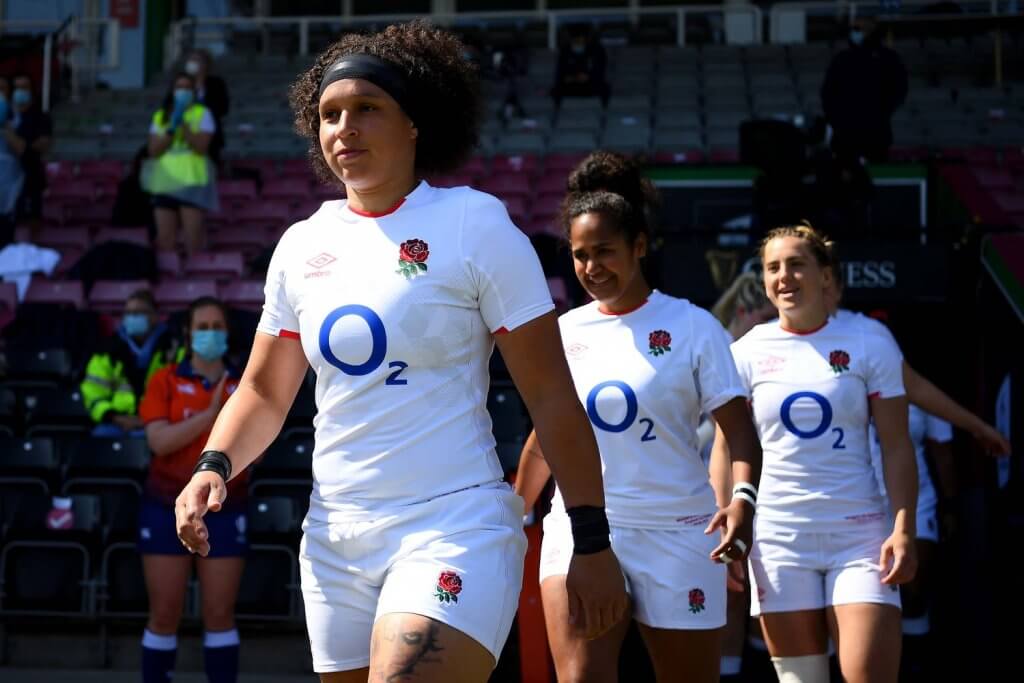
We’re talking about how different industries and workspaces have different languages, and one of the things that’s hard about moving between industries is figuring out these different spaces. Marketing has acronyms for everything, but similarly, being a pundit on TV for rugby requires its own language that other rugby players and fans understand. You seem to have this flexibility to move between these different spaces. In terms of sport and thinking about your career up to now, did you think you could make a living from sport when you were starting out?
“Well, starting in sport, I was 12 years old and it just wasn’t a thing then. I just loved being outside. Even getting to 16, 17, 18, when I was still in athletics, I did think, ‘I feel like I’m ready to go full time.’ But there was no financial support. My upbringing and family life meant that was never an option – I couldn’t just not work. When I started playing rugby and got asked into an England camp, we got paid for being in camp.
“You got a day rate and then if you got selected for the game, you’d get a match bonus. I remember thinking, ‘they’re going to pay me to train?’ But everyone else from that rugby world was already saying ‘yeah, I know it’s not ideal, ideally we’d have full-time contracts.’ But I was just amazed they were giving me money to train. Obviously it developed from that into the full-time contracts in 2019. Playing rugby full-time was never on my to-do list, and I have a very big to-do list. It just happened.”
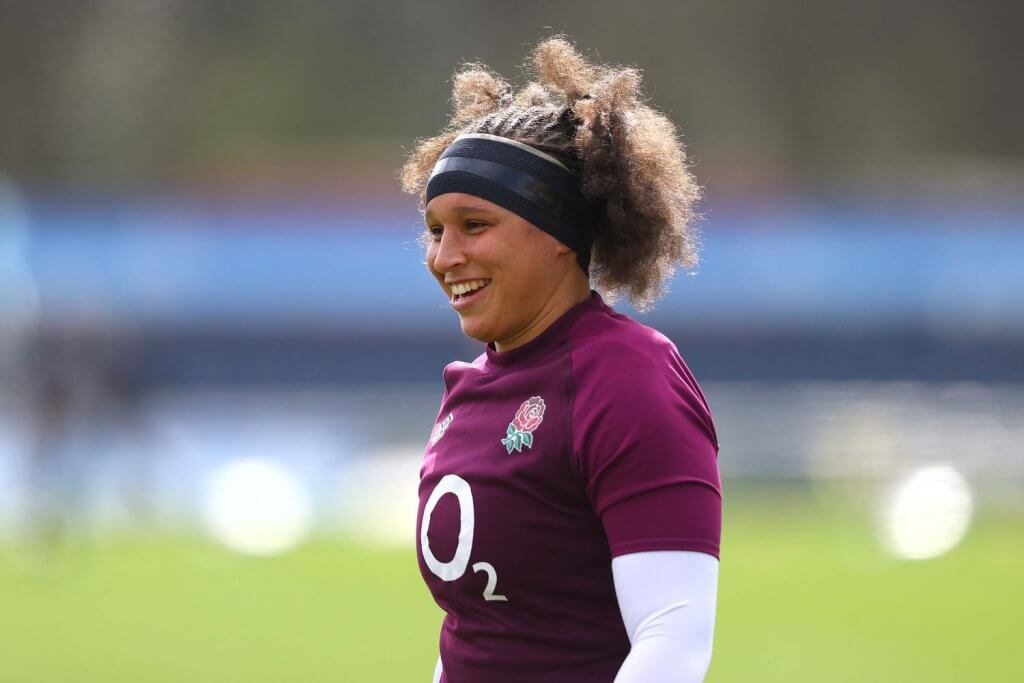
So you just had a sense that you wanted to do as much sport as possible and then gradually piece by piece that became possible?
“Yes, it was just about having fun, doing what I wanted to do – which was sport, being outside, traveling around the country, having somewhere to be on a Saturday or Sunday. I’ve always lived an active lifestyle, wanting to be buzzing between different places, going up to Sheffield to compete, going back down to Margate. I was born at a good time in life that I was able to play rugby full-time.
“That’s literally just luck of when I was born. You get players like Rachel Burford and Rocky Clark who did get some payment towards the end of their international careers, but they were born in the wrong era to play rugby full-time and be paid for it. I don’t like to use the word lucky, but when it’s about the year you’re born, that is luck. We’re not better players, we’re not better people. England rugby just decided then that they were going to really invest in women because that’s the future of the game.”
On that lucky/unlucky topic – the reason you weren’t necessarily going to be in a position to earn money and play rugby full-time is, of course, because you’re female. If you’d been male, that would have been a clear path. How do you feel about that?
“There are huge differences between being male and female. The boys get picked up at school, go into an academy, then get full-time contracts and support. Boys come out of school and go straight into rugby. I say it’s great, but where do they learn their life skills? It’s very different for the women’s game. You join either late, like I started at 25, or a lot of women start playing at university because it’s their first exposure to it.
“Most people playing in the Premiership women’s rugby have a job. As much as we now have full-time contracts for England players, most of the Premiership players have jobs. Actually, I wouldn’t want the same model as the men’s game because those boys get to the end of their careers and it’s just like, ‘what now?’ Some have never had to make a CV, write a cover letter, cook for themselves or wash their own clothes.
“You’re not preparing them for independent life. I’m not sure I’d want the women’s game to get to that place where women are worried about what happens next. At the moment, it’s just in two different places and it’s about using the strengths and weaknesses of each to come up with a perfect formula in the middle.”
The job that professional athletes do, whilst it’s great while you’re doing it, isn’t going to last that long relatively speaking. And yes, it will be your whole identity for a time, but ultimately it is just a job…
“It’s a job while you’re doing it, but you never switch off. It doesn’t get to a certain time and you’re not a rugby player anymore – you’re always that. For me, especially when you have a certain profile, I just call it ‘always on.’ I always feel like I’m on show and have to be a certain person. Some corporate jobs are like that too, where you constantly have to be that representative for that company.
“When you get to a certain profile, you are a role model and you have to watch what you put on social media. For me, it’s not only what’s in focus in the picture, but I’m checking what’s in my background, what sounds you can hear, what other people are saying. I know a lot of my following is of a certain younger age, so I’m not going to be putting me going out drinking alcohol on my socials. Whilst yes, it’s what I do sometimes, that’s not the public image I want to portray.”
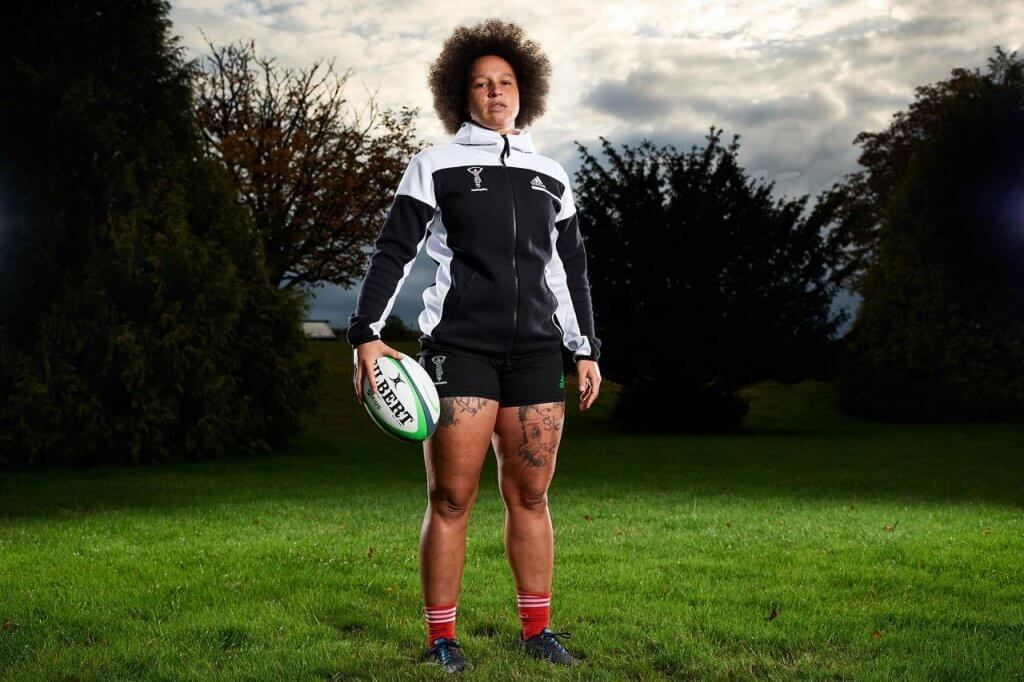
How do you balance that recognition of yourself as a role model and thinking about what you want to show people while being authentic?
“What a great question. Some of it helps that ultimately, if I don’t want to put something, say something, or go somewhere to an event, I won’t. On that side of my life, I am my own boss. What you see on my social media is me. When I speak and answer questions or host a panel, that’s me. Some people struggle with it – they’ll say ‘I’ll get the brief to you, I’ll get the questions to you so you can prepare.’ I say no stress if not, because I’ll answer from the heart. I don’t have anything to sell, I don’t need to get keywords or buzzwords in. Sometimes I forget to do self-promotion because I’m speaking from the heart.
“I learned, not that long ago considering I’m 34, it’s so much easier to be myself than to pretend to be someone else. Because if you lie about who you are, you have to remember what persona to be in each situation. Whereas me, this is it. I get it, I’m not for some people. But I know a lot of people love who I am and what I’ve become. They’re on board the Team SB train and it’s always on the move. A few stations, a few stops, but no end destination. Jump on for the ride if you want – it’s a fantastically fun journey.”
Do you feel any nerves about presenting yourself in that way in this new corporate environment?
“I guess there is some hesitancy, but mainly because I’m now dealing with people who don’t know me. Communicating with someone entirely over email, I speak a lot in sarcasm and jokes, I do a lot of playful things. But I understand typing some of the things I say out – I have to think how does that look to someone who doesn’t know anything about me or how I communicate face to face.
“Then there’s the part about people who are not into sport – it’s a whole different breed of human beings. I’m like, ‘you all need to just chill out.’ You’re too serious. I know it’s your whole job to care about it, but you can care while having fun. I think the corporate world could deal with a lot more chilling out. I found it in the fire service as well – everyone’s just pulling your leg the whole time. And the sooner you get on board, the more fun you will have. We need more practical jokes, more chill pills, and we’ll get a lot more work done.”
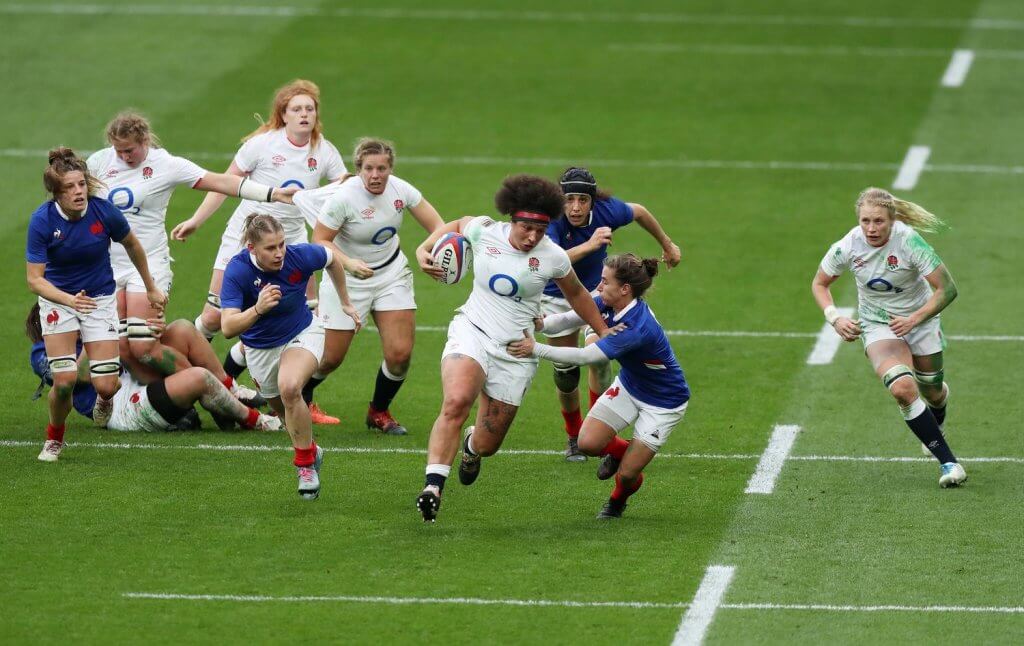
What do you think are the main things that organizations like the one you’re working for can benefit from if they had more elite athletes and people who’ve worked and played in the kind of environment that you have?
“You’ll get a whole different skill set that you probably couldn’t write down on a CV. For my job, I’m literally in sports marketing, it just happens to be for British Gas. There are experiences I can talk about where I know the piece of paper says this is really going to work, but when I’ve been sat in that changing room or that meeting room, it doesn’t work. I’ve not just sat in one changing room or one meeting – I’ve been with a lot of different types of people.
“Someone who’s been an international athlete or an elite athlete is likely to always want the best. No matter what, it’s about what’s next. I call it an elite athlete disease – you could give an Olympic gold medalist an Olympic gold medal and they’ll still come back to another Olympics. In the business world, surely that’s what it’s all about? You just want to be better. While you do whatever it takes to be better, you still understand the power of relationships. You still understand that you have a team behind you. Even if you do an individual sport, you are not an individual.
“Elite athletes know that we need all types of skillset – someone who’s going to clean the gym is just as important if you are a gymnast as someone who’s going to coach you. Someone who’s going to fix you when you’re broken, someone who’s going to get your mental health in the best place possible. The whole team is needed to be the best and athletes just completely get that.”
Best of luck with it – I look forward to hearing more about it in a few months’ time to see how it’s going!
“It’s actually a nine-month contract, so it’s a nice middle ground to get a taste to see if it’s what I want. We’ve been told there’s a place in the business for us if we want it. Honestly, I love it. I think it’s a fantastic thing – more companies should do it. Got to tell them that.”



